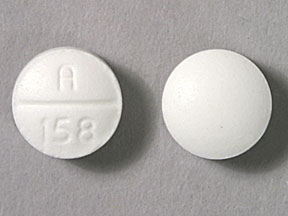Meperidine Interactions
There are 484 drugs known to interact with meperidine, along with 16 disease interactions, and 1 alcohol/food interaction. Of the total drug interactions, 173 are major, 308 are moderate, and 3 are minor.
- View all 484 medications that may interact with meperidine
- View meperidine alcohol/food interactions (1)
- View meperidine disease interactions (16)
Most frequently checked interactions
View interaction reports for meperidine and the medicines listed below.
- Acetylsalicylic Acid (aspirin)
- Ambien (zolpidem)
- Ativan (lorazepam)
- Augmentin (amoxicillin / clavulanate)
- Celebrex (celecoxib)
- Coumadin (warfarin)
- Cymbalta (duloxetine)
- Dilaudid (hydromorphone)
- Fentanyl Transdermal System (fentanyl)
- Flexeril (cyclobenzaprine)
- Lasix (furosemide)
- Lovenox (enoxaparin)
- Morphine Sulfate ER (morphine)
- Neurontin (gabapentin)
- Nexium (esomeprazole)
- Norco (acetaminophen / hydrocodone)
- Paracetamol (acetaminophen)
- Phenergan (promethazine)
- Prozac (fluoxetine)
- Seroquel (quetiapine)
- Toradol (ketorolac)
- Tylenol (acetaminophen)
- Valium (diazepam)
- Vitamin B Complex 100 (multivitamin)
- Vitamin B12 (cyanocobalamin)
- Vitamin C (ascorbic acid)
- Vitamin D3 (cholecalciferol)
- Xanax (alprazolam)
- Zofran (ondansetron)
- Zoloft (sertraline)
Meperidine alcohol/food interactions
There is 1 alcohol/food interaction with meperidine.
Meperidine disease interactions
There are 16 disease interactions with meperidine which include:
- impaired GI motility
- infectious diarrhea
- prematurity
- acute alcohol intoxication
- drug dependence
- hypotension
- intracranial pressure
- respiratory depression
- gastrointestinal obstruction
- adrenal insufficiency
- liver disease
- renal dysfunction
- seizure disorders
- urinary retention
- arrhythmias
- biliary tract disease
More about meperidine
- meperidine consumer information
- Compare alternatives
- Pricing & coupons
- Reviews (101)
- Drug images
- Side effects
- Dosage information
- During pregnancy
- Drug class: Opioids (narcotic analgesics)
- Breastfeeding
- En español
Related treatment guides
Drug Interaction Classification
| Highly clinically significant. Avoid combinations; the risk of the interaction outweighs the benefit. | |
| Moderately clinically significant. Usually avoid combinations; use it only under special circumstances. | |
| Minimally clinically significant. Minimize risk; assess risk and consider an alternative drug, take steps to circumvent the interaction risk and/or institute a monitoring plan. | |
| No interaction information available. |
See also:
Further information
Always consult your healthcare provider to ensure the information displayed on this page applies to your personal circumstances.


